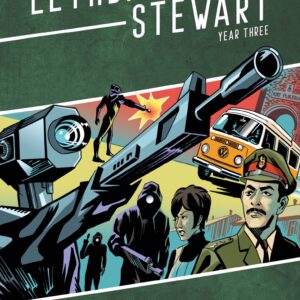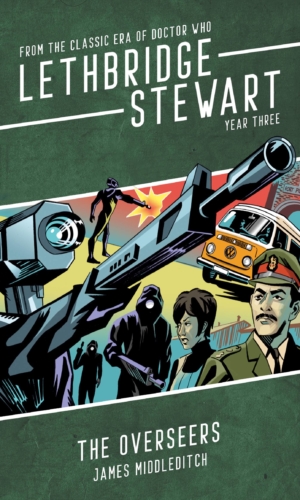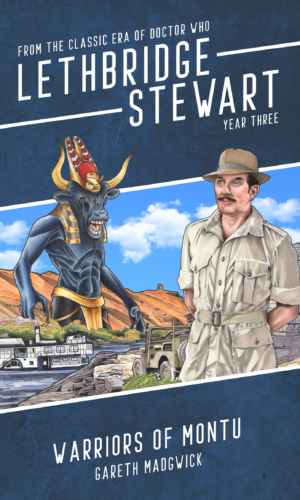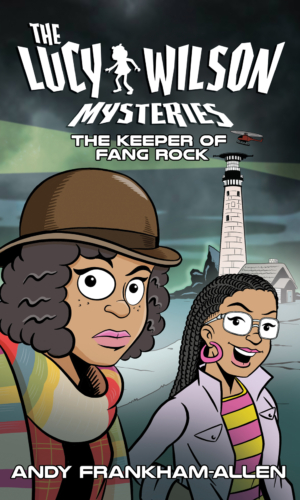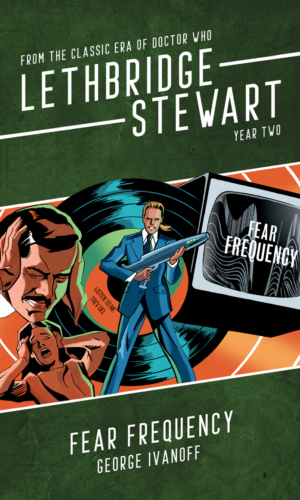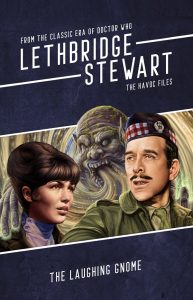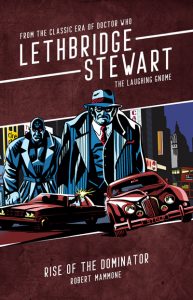Format: DVD
Warts & All: Flying Hubcap!
Quote: It’s rather a pity in a way. Now the universe is down to 699 Wonders.
Review: What a great first episode. Terry Nation gets only four parts on this occasion to rework his standard Dalek story template and the first one is a cracker. The TARDIS dying due to a mysterious power drain, the planet in darkness, Sarah and the Doctor separated, monsters stalking in the mist, tense creepy atmosphere and a great double jeopardy cliffhanger with Sarah captured and prepared for sacrifice while the newly-arrived Daleks mercilessly open fire on a defenceless Doctor and the members of an expedition from Earth. And most of the remaining three parts aren’t bad either. Without the need to pad things out to fill six whole episodes, Mr Nation keeps things moving along like a freely trundling Dalek – not quite as smooth as a Dalek on rails, say (ahem) but perhaps one on a slightly bumpy down slope.
One of the limiting factors is that I’m watching this through a filter of previous Dalek stories and it’s tricky to ignore the transplants – Earth mission instead of Thals, Exxilons instead of Spiridons (one faction enslaved by the Daleks, one bunch of rebels), a city that needs breaking into if all is to be resolved. But in many ways this recipe of similar ingredients is more interesting. The City is ‘one of the Wonders of the Universe’ – an ancient, living city, complete with lethal robotic snake-like roots (which, visible wires aside, are reasonably well realised), that is draining all the power from everything, TARDIS, Earth ship and Dalek hubcap alike. There’s a spot of workaround dialogue about psychokinetic energy to explain how the Daleks can move (we’re not meant to notice the rails in the sand) but the factor that makes this truly memorable is their inability to fire their weapons – which, not coincidentally, is what makes that first cliffhanger so terrific. Of course then the Daleks show tremendous ingenuity and adaptability by kitting themselves out with machineguns, wonderfully test-fired with a spot of target practice on a tiny model TARDIS. It’s unfortunate that – perhaps under some obligation from the title – a number of the Daleks expire from simple beatings and, while it does give rise to great imagery of a flaming Dalek, I’m never that fond of stories which show some of the Doctor’s greatest enemies as weak and pathetic. We could maybe attribute the death by clubbing to the power drain, weakening the Dalek’s defences or something. But there’s even one Dalek that self-destructs because some prisoners escaped on his watch.
It’s a facepalm moment. Earth crewmember Galloway’s self-sacrifice at the end makes almost as little sense, given that he’s been shown as an ambitious, self-serving hardcase who takes command in spite of his dying commander’s wishes in a thread that goes precisely nowhere. That and the way everything is wrapped up in record quick time suggests to me that perhaps there were two more episodes originally intended and this was cut down.
Maybe not and it works okay as it is, albeit with a bit too much of two episodes given over to puzzle-solving in the City, as the Doctor and native friend, Bellal – a nicely realised little alien chap, and it’s good to see the Doctor treating an alien companion just as he would a human – work their way towards the centre. It doesn’t help that the puzzles, as usual in these kinds of setups, are rubbish. One of them makes for possibly among the weakest cliffhangers ever, as the Doctor points at a red and white pattern on the floor. It’s not even a particularly scary shade of red. The greatest levels of artifice needed here are to avoid showing us the Daleks solve things like the touch-sensitive maze on the wall. A shame because I would have liked to see how they did that.
Generally then, there are niggles aplenty, but for the most part it’s decent SF adventure with quantities of action and perils, memorable moments and half an eye to events going on in the wider Who universe (space plague!), with an entertaining twist that the Daleks aren’t so much interested in the cure for themselves as they are for its value as currency for coercing others. Not epic but enjoyable and I know this story is in part to blame for my villainous character, Dexter Snide, and his mission to vandalise all the Wonders of the Universe. So I owe it that much at least.



